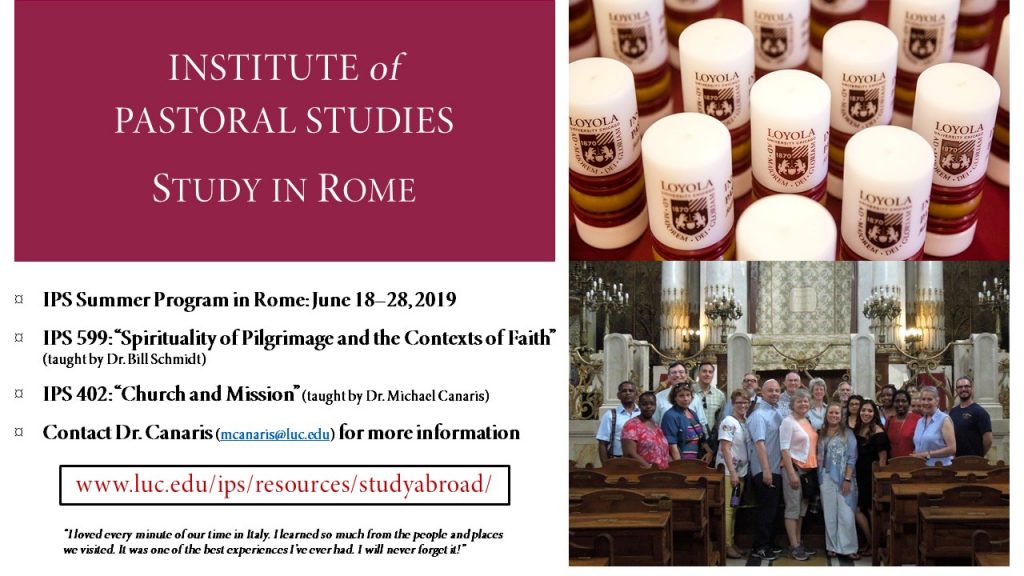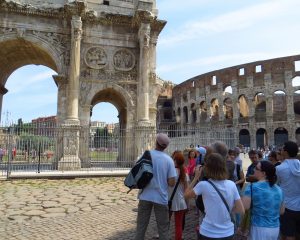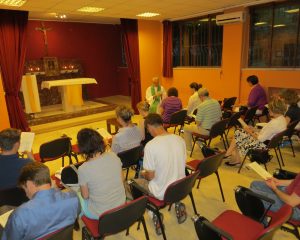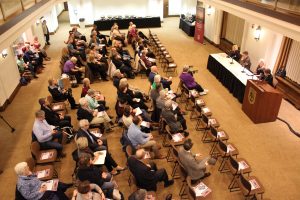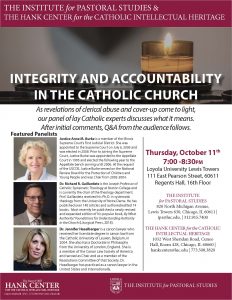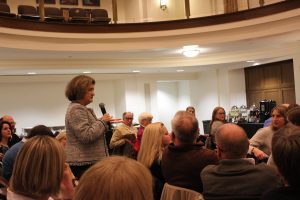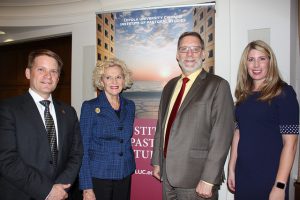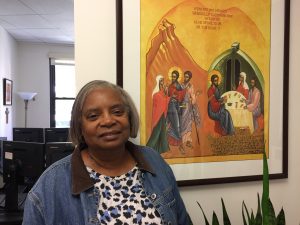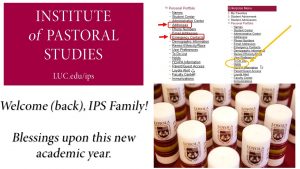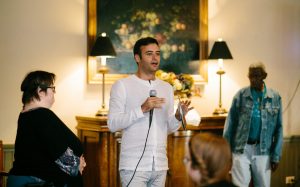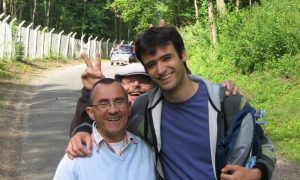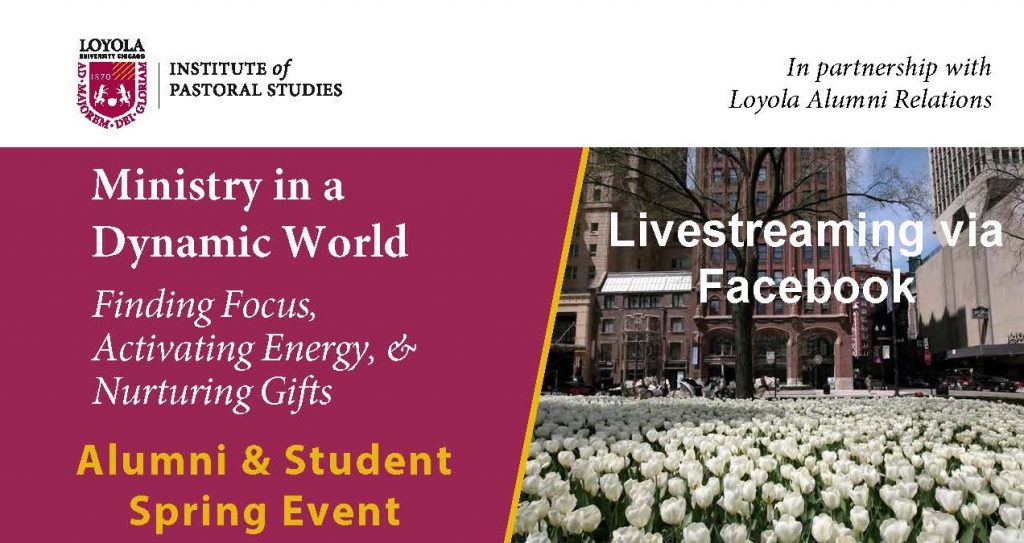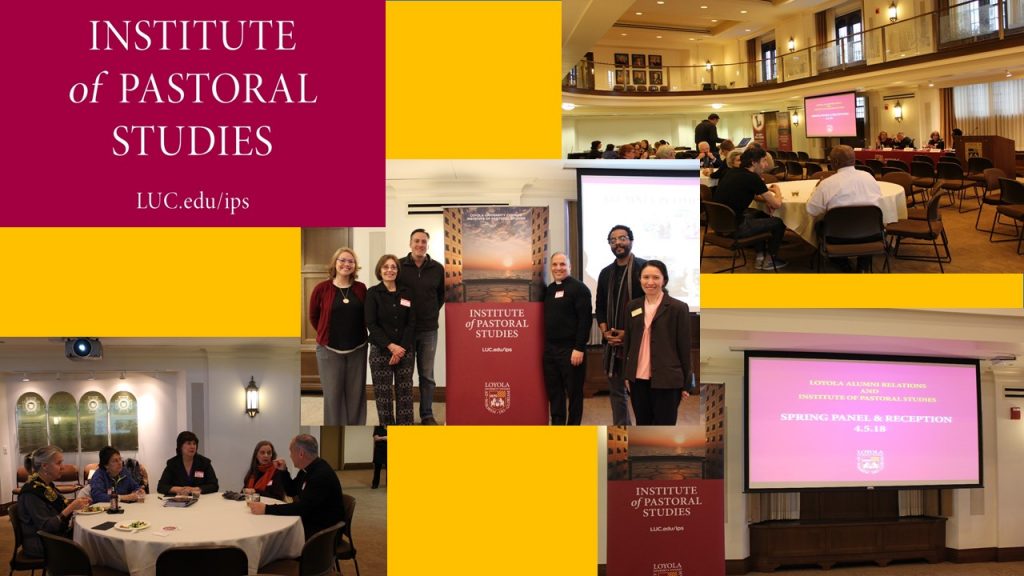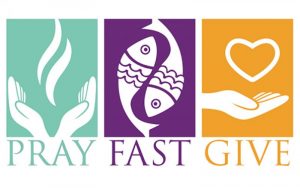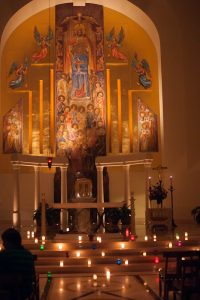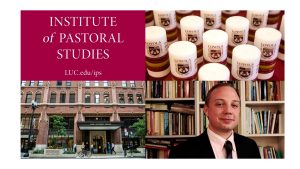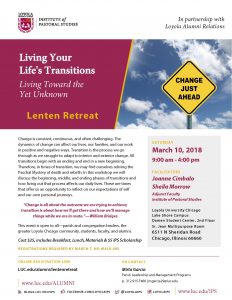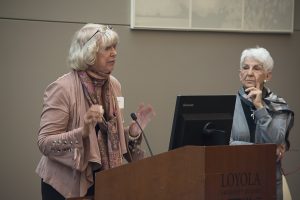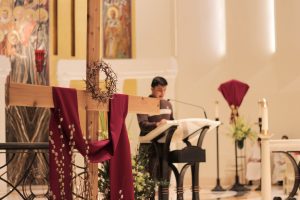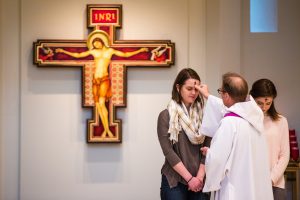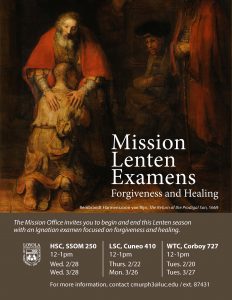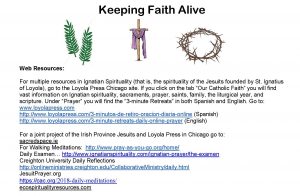Registrations for the Rome 2019 program are now open. Space is limited. 1st deposit deadline: Dec-15.
*** ALUMNI: Please contact Dr. Mike Canaris (mcanaris@luc.edu) before registering. ***
The IPS 2019 Study in Rome summer program provides a unique opportunity to experience firsthand the historical, cultural, and spiritual benefits of the Eternal City and the Vatican. Led by faculty members with longstanding personal relationships with local academic and ecclesial leaders there, the program is a unique opportunity for students of IPS. Participants are able to draw upon the invaluable resources of Loyola’s half-century presence running a campus for students of various ages and degree programs who choose to study in the Eternal City.
Upcoming Summer June 18–28, 2019 Courses:
IPS 402: Church and Mission, taught by Dr. Michael Canaris
IPS 599: Spirituality of Pilgrimage and the Contexts of Faith, taught by Dr. Bill Schmidt
To view Course Descriptions click here.
Shingai Chigwedere and Doreen Kelly are two IPS students who participated in last summer’s Rome program. They have been kind enough to share their thoughts on their Eternal City experience.
From Shingai: The IPS Rome Summer Program is a unique opportunity to engage in faith, fellowship and delicious food. Rome is special because it is a trifecta of rich religious, political and cultural history. Two classes were offered, I took the Theology of Pope Francis class with Dr. Mike Canaris. I was impressed with the way our church tours and tourist location visits connected with our class content on encounter, service, collegiality and ecumenism to name a few. Dr. Canaris and Dr. Jones did a fantastic job preparing semi-lectures and discussion material for our in-situ experience. My class spent 1.5 days in Assisi learning more about the Franciscan influence in Pope Francis’ life. We did volunteer work at Sant’ Egidio community, had an insightful visit to the Jewish Ghetto Museum and Synagogue, and learned more about ecumenical dialogue at Centro Pro Unione.
My favorite part was celebrating Mass and having private prayer and reflection time in churches like St. Peter’s Basilica and Santa Maria Maggiore. Having participated in Loyola’s Ignatian Spiritual Exercises retreat, it was profoundly heartwarming to celebrate Mass in St. Ignatius’ room, with a Jesuit celebrant, with classmates from a Jesuit University, in Rome, during the pontificate of a Jesuit Pope. Wow, what a unique moment in time! It was enriching to walk with (figuratively and literally, we walked a lot!), learn with and from committed and passionate IPS classmates. The time we spent getting to know each other (encountering each other) as we broke bread and enjoyed great food and gelato was priceless. Don’t miss out on this educational and spiritually enhancing opportunity!
From Doreen: What I expected: To visit and learn about places important to the history of the early Church, to celebrate Eucharist in some unique and special locations, to eat great food, to walk a lot.
What I found: All of the above and so much more!! Rich stories about artwork and architecture shared by extraordinarily knowledgeable classmates and our professor; an unexpected and simple call from God to be with God in amazing places which commemorated both sinners and saints; walking that became a pilgrimage on which I met God in others; meals that became celebrations of friendship; the best gelato in the world; deep conversations which expressed faith seeking understanding; intense times of silence in the presence of places that had been inhabited by or items once belonging to saints; an opportunity to serve and pray with a community making a difference in the daily lives of immigrants; deeply spiritual sacramental moments.
How it has changed me: IPS Rome 2018 awakened the pilgrim in me, that belief that whether the road is ordinary or extraordinary, God waits there to be found in both subtle and majestic ways. I am ever grateful!
Click on the link to access the REGISTRATION site and view the housing options.
Registrations for the Rome 2019 program are now open. Space is limited. 1st deposit deadline: Dec-15.
*** ALUMNI: Please contact Dr. Mike Canaris (mcanaris@luc.edu) before registering. ***
~~~~~~~~~~~~~~~~~~~~~~~~~~~~~~~~~~~~~~~~~~~~~~
